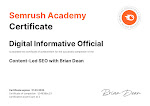Sex in the World: A Comprehensive Exploration
Sex in the World: A Comprehensive Exploration
Sex, an intrinsic aspect of human nature, has been a subject of fascination, taboo, and debate throughout history. From ancient civilizations to modern societies, perceptions and practices surrounding sex have evolved, shaped by cultural, religious, and societal influences.
1. Introduction to the Topic
At its core, sex encompasses not only the physical act but also emotional, psychological, and social dimensions. It plays a fundamental role in human relationships, reproduction, and personal identity.
2. Historical Perspectives on Sexuality
Throughout history, attitudes toward sex have varied significantly across different cultures and time periods. Ancient civilizations often had complex rituals and beliefs surrounding sexuality, with practices ranging from reverence to repression.
3. Modern Views and Societal Norms
In today's world, attitudes towards sex continue to evolve rapidly. With the advent of globalization and the influence of media and technology, traditional norms are being challenged, leading to more open discussions and acceptance of diverse sexual identities.
4. Global Variances in Sexual Practices
Cultural diversity greatly influences sexual practices worldwide. What may be considered acceptable or taboo in one society may be entirely different in another. Understanding and respecting these differences are crucial for promoting tolerance and inclusivity.
5. Health and Safety Considerations
Educating individuals about safe sex practices, contraception, and sexually transmitted infections (STIs) is essential for safeguarding public health. Access to comprehensive sexual education and healthcare services is vital in promoting overall well-being.
6. Psychological and Emotional Aspects
Sexuality also encompasses emotional and psychological aspects, impacting individuals' mental health and relationships. Understanding the complexities of human intimacy is crucial for fostering healthy connections and addressing issues such as intimacy disorders and sexual dysfunctions.
7. Legal and Ethical Implications
Legal frameworks surrounding sex vary widely across the globe, reflecting cultural, religious, and moral values. Advocacy for sexual rights, including the right to consent and autonomy, is essential for ensuring dignity and equality for all individuals.
8. Conclusion
In conclusion, sex is a multifaceted aspect of human existence, deeply intertwined with culture, society, and individual identity. By fostering open dialogue, promoting education, and advocating for rights and safety, we can create a more inclusive and respectful world for all.
Unique FAQs
- Is sex a taboo topic in all cultures?
- While some cultures may be more conservative in their attitudes towards sex, others are more open and accepting. It varies greatly depending on societal norms and religious beliefs.
- How does media influence perceptions of sex?
- Media plays a significant role in shaping attitudes towards sex, often portraying idealized or unrealistic depictions that can impact individuals' self-image and expectations.
- What are some common misconceptions about sex education?
- One common misconception is that comprehensive sex education promotes promiscuity. In reality, it empowers individuals to make informed decisions and promotes healthy behaviors.
- What role does consent play in sexual interactions?
- Consent is crucial in all sexual interactions, ensuring that both parties freely and willingly participate. It is a fundamental aspect of respect and autonomy.
- How can society promote inclusivity and acceptance of diverse sexual identities?
- Society can promote inclusivity by fostering open-mindedness, challenging stereotypes, and advocating for equal rights and representation for all sexual orientations and gender identities.






















Post a Comment